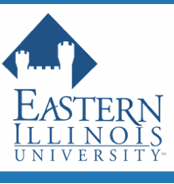Preferred Delivery
Virtual
Length of Presentation
50 minutes
Start Date
7-10-2022 11:00 AM
End Date
7-10-2022 11:50 AM
Document Type
Presentation
Abstract
Students bring vital learning from their life experiences to their campus classrooms. This learning is not always recognized in course activities or assignments. When it is, students persist and complete their degrees. These benefits are especially evident for adult and non-traditional students. Our proposed presentation on prior learning has three movements. The first will be an overview of how prior learning is presently recognized in higher education. The second will be a discussion of the promise and limitations of recognizing prior learning to promote traditionally excluded voices. The third will be a discussion of strategies for applying principles of prior learning recognition and assessment across disciplines and in the classroom.
Description
In academic year 2021-22, the presenters participated in a faculty learning community at DePaul University. They collaboratively investigated prior learning as a pedagogical consideration and brainstormed opportunities for implementing pragmatic, equitable PLA-informed strategies into coursework. In particular, they explored how prior learning recognition by faculty might create learning opportunities for students who are non-traditional and/or members of typically disenfranchised populations. They concluded that acknowledging prior learning creates a sense of belonging for all students, especially working adults and those recently returning to formal postsecondary learning.
Our presentation contains three main movements. It starts with an overview of how prior learning and prior learning assessment are used in higher education. A discussion of the promise and limitations of recognizing prior learning to promote traditionally excluded voices in higher education follows. The presentation ends with sharing and collaborative discussion of strategies for applying prior learning principles across disciplines and in the classroom.
Presentation Relevance to Conference Theme
Awarding prior learning credit benefits students in two main ways. It demonstrates the institution values their experiences and it lessens their time to degrees. This is particularly true for adult and non-traditional students. Despite burgeoning research indicating how recognition of prior learning has the strongest impact on degree completion for Black and community college students, nationally, members of these student demographics are awarded prior learning credit at the lowest levels. This presentation is offered to build awareness of the need for more, and more targeted, prior learning credit not only at the course level but within courses. [1]
Target Audience
The intended audience includes course instructors, staff who advise or otherwise work closely with college students, and administrators responsible for student persistence and completion.
Planned Learning Outcomes
By the end of the session, participants will be able to:
- Explain the key ways workplace experiences are presently converted into college credit
- Identify the advantages of using prior learning assessment to recognize and value students’ unique life experiences as foundational for course content mastery, not only course credit
- Use reflection-based approaches and assignments to guide students in accessing their prior learning at the course and program levels
- Describe their new awareness of ‘who’ benefits when prior learning assessment is embedded in course activities and program induction, as well as how
[1]CAEL/WICHE. (2021). Equity Paradoxes in the PLA Boost. https://www.cael.org/hubfs/PLA%20Equity%20Report%20CAEL%20WICHE%20October%202021.pdf
Creative Commons License

This work is licensed under a Creative Commons Attribution-Noncommercial-No Derivative Works 4.0 License.
Included in
Adult and Continuing Education Commons, Adult and Continuing Education and Teaching Commons, Higher Education Commons, Higher Education and Teaching Commons
Prior Learning: Diversity and Practice
Students bring vital learning from their life experiences to their campus classrooms. This learning is not always recognized in course activities or assignments. When it is, students persist and complete their degrees. These benefits are especially evident for adult and non-traditional students. Our proposed presentation on prior learning has three movements. The first will be an overview of how prior learning is presently recognized in higher education. The second will be a discussion of the promise and limitations of recognizing prior learning to promote traditionally excluded voices. The third will be a discussion of strategies for applying principles of prior learning recognition and assessment across disciplines and in the classroom.





Speaker Information
Nicholas Hayes is the Assistant Director of DePaul University's Office of Prior Learning. He holds an MFA in Writing and an MA in Sociology. He has published and presented on teaching Queer Literature, supporting adult students in developing their writing skills, and prior learning assessment.
Christopher Martinuzzi earned a Ph.D. in History from the Scuola Normale Superiore di Pisa, Italy in 2016. He has worked on various aspects of religious non-conformism and tolerance in the early Reformation. Currently an adjunct faculty member in the Department of History at DePaul University, in 2017 he completed a postdoctoral fellowship at UNC Charlotte where he also was awarded a faculty fellowship in its Office of Assessment and Accreditation. In this capacity, he developed a faculty assessment toolkit designed to provide instructors an array of assessment strategies and tools that reflected the perspectives of how diverse students evidence their learning within course contexts.
Barbara Lewis earned a master’s degree in Human Resources at St. Mary’s College and a master’s degree in educating adults from DePaul, and has been an adjunct professor at DePaul since 2019. She has worked in the business sector for over 30 years in HR leadership roles for emerging and Fortune 1000 companies. As a non-traditional student who took advantage of PLAs to complete her first degree, she brings her experience to creating ways for recognizing the rich prior learning experiences of her students with diverse backgrounds.
Marie Ann Donovan, Ed.D. (Harvard) is an associate professor of teacher education at DePaul University. Her more recent work is focused upon developing competency-based ways to evaluate and acknowledge workplace learning by early care and education professionals for credit at the course and program levels.